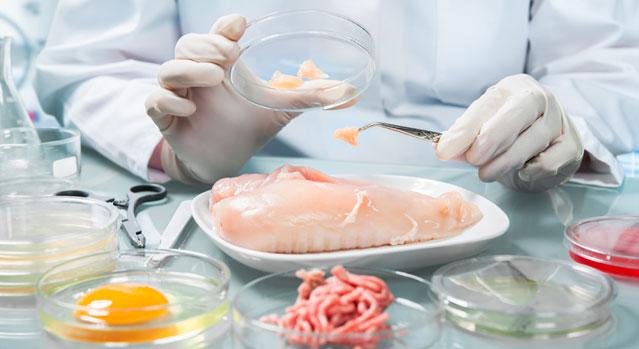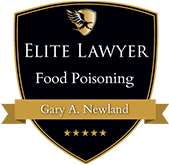Find an
Attorney
Food Poisoning Attorney FAQs - Frequently Asked Questions

Personal Injury Lawyers Can Answer Your Questions About Foodborne Illnesses
In the United States, we expect the food we purchase from stores or restaurants to be safe to eat, but all too often, people are harmed by food poisoning. Foodborne diseases can be spread for a variety of reasons, and those who have been injured because of the negligence of restaurant staff, grocery store employees, manufacturers, packagers, distributors, or others should understand their options for pursuing compensation. Here are some answers to frequently asked questions about food poisoning:
What Causes Food Poisoning?
Most foodborne illnesses occur because of the presence of bacteria or viruses in the food people eat, although injuries can also occur if people ingest food contaminated with fungi or toxic chemicals.
How Common Is Food Poisoning?
Around 48 million people contract some form of food poisoning every year in the United States, which means that one in every six people will be affected by foodborne illnesses. Around 128,000 people are hospitalized and 3,000 people die each year due to food poisoning.
What Are the Most Common Foodborne Diseases?
The Centers for Disease Control and Prevention (CDC) has identified more than 250 foodborne illnesses. The most common cases involve one of the following pathogens:
- Salmonella
- E. Coli
- Norovirus
- Botulism
- Hepatitis A
How Can Food Poisoning Be Prevented?
Food should be properly prepared, cooked, and served to prevent contamination. People should always wash their hands before handling food, and utensils, cutting boards, and surfaces that have touched raw meat should be cleaned before being used to prepare other foods. Meat, poultry, fish, and eggs should be thoroughly cooked to the proper internal temperature. Fruits and vegetables should be thoroughly washed before they are served. Food should be properly refrigerated when it is stored.
Who Is Responsible for Food Poisoning?
A variety of parties may be responsible for allowing contaminated food to be provided to consumers. These may include:
- Restaurant staff that did not properly wash their hands before preparing food, failed to fully cook meat or poultry, or allowed cross-contamination by using the same utensils or surfaces to prepare raw meat and other foods.
- Grocery store staff that did not properly refrigerate meat, poultry, or fish.
- A food packaging facility that allowed food to become contaminated during the manufacturing process.
- A farm that allowed contaminated produce to be sold to consumers.
Should I Seek Medical Treatment for Food Poisoning?
The symptoms of food poisoning often include nausea, vomiting, stomach pain, fever, diarrhea, and exhaustion, and they may not become known until days weeks after eating contaminated food. If you experience any of these symptoms, it is important to receive medical attention to ensure that any serious complications are found and addressed as soon as possible. This will also ensure that your medical records establish the extent of the injuries you suffered because of the negligence of the responsible parties.
What Types of Compensation Are Available for Food Poisoning?
A foodborne illness can have a serious impact on your life, and you may be able to recover damages from the negligent party, including:
- The costs of medical care, including the need for ongoing treatments and rehabilitation.
- Income lost due to the inability to work while recovering from a foodborne disease.
- Pain and suffering.
If you have become ill after eating contaminated food, a personal injury attorney can review the circumstances of your case to determine who was responsible and help you pursue the financial compensation that addresses the harm that was done to you and your family.
Contact Us
FEATURED ATTORNEYS
Recognizing excellence |
Want to be featured on our homepage? Contact us to learn more. |
No Featured Attorneys Found in Ohio














